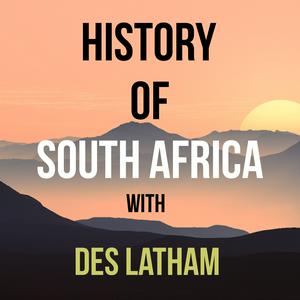The twenty thousand strong Zulu army was camped near Nseka Mountain south of the British camp at Khambula hill — north west of modern day Vryheid. After defeating Lieutenant Colonel Evelyn Wood’s Number 4 column at Hlobane, Zulu commanders Ntshingwayo and Mnyamana stopped to rest their men on the banks of the White Mfolozi. about twenty kilometers from the British camp.
Wood’s column had retreated to the base at Khambula Garrison — along with the cavalry led by Redverse Buller after the thrashing they’d received at the Battle of Hlobane. You heard about that in episode 262.
Perhaps it made sense to wait, the British had already been reinforcing Kambula for weeks and the position that Evelyn held was strong. They had spent weeks digging elongated earthworks, a redoubt on a narrow ridge of tableland on the summit of Khambula. There were two guns here, and it was connected to the main wagon-laager which lay 20 meters below and 280 metres away by the four other guns placed at regular intervals. These were significant weapons.
The wheels of the wagons were lashed together, and each wagon-pole or tied tightly to the wagon ahead, sods of earth had been thrown up under the wagons to form ramparts, and bags of provisions run along the outside of the buckrails of the wagons with firing slits every few yards.
Below this defensive structure was another smaller laager of wagons, connected by a palisade — into which 2000 cattle were crammed. On the right side of both laagers lay a rocky ravine, no-one would be climbing up this access point and through which the stream of Selandlovu rushed. To the left, the ground sloped away more gently, and provided an excellent field of fire.
Wood had 2 086 officers and men, including eight companies of the 90th Light Infantry — and seven companies of the 1/13th Light infantry totaling 1240 troops. The mounted squadron included 99 from the Mounted Infantry, four troops of the Frontier light horse of 165 men, two troops of Raaff’s Transvaal Rangers, almost a hundred of Baker’s Horse, 40 more from the Kaffrarian Rifles, bolstered by a Mounted Basotho group of 74, they’d come all the way from Basotholand, from further south, joined by 16 men of the Border Horse, along with 41 Boers from a local northern Zululand commando.
58 black support troops were also camped at Kambula, along with 11 Royal Engineers, and 110 men of the number 11 Battery, Royal Artillery and their six 7 pounders.
This was a well balanced column, but still about ten percent the size of the nearby Zulu army. The British had a major advantage, they were defending a well constructed and armed with the latest weapons of war.
Unlike the other battles, the British had measured out range markers and setup stone cairns painted white. The Zulu would not be able to easily charge Khambula over the open ground, nor climb quickly enough in numbers to attack over the steep eastern edge.
Dawn broke on the 29th March 1879 and the Zulu commanders gathered their men. The youngsters demanded the army launch a straightforward charge up the slope to smash the English once and for all, but Chiefs Mnyamana and Ntshingwayo were smarter than that. Both had strict orders from Cetshwayo about tactics, and he’d made it clear there would be no more direct full frontal attack on well dug-in British camps.
Mnyamana was more of a diplomat than soldier, if you remember it had been Ntshingwayo who led the men in their victory at Isandhlwana, but Mnyamana was technically the senior commander - so it was he who formed the amabutho into their traditional circle.
As the sun lifted over the hills, mist coiled along the White Mfolozi, and thousands of Zulu warriors formed in their regiments on the riverbank. They stood shoulder to shoulder while their commanders strode before them, voices rising, calling them to courage and endurance.


